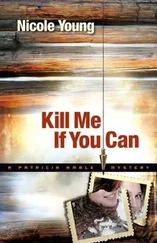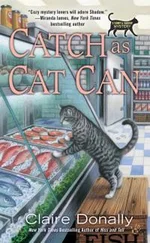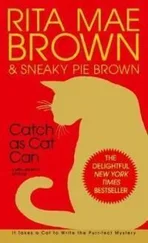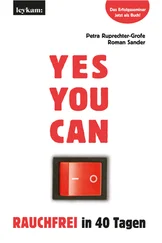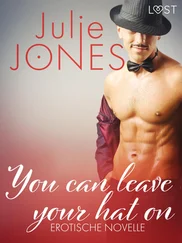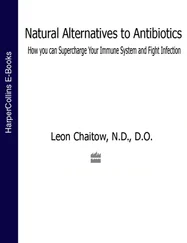“The stockroom, around the corner there,” he said, pointing. “Help yourself.”
I did, since the stockroom was unattended. I grabbed a batch of envelopes, a stack of stationery with Pan Am’s letterhead, stuffed them in my briefcase and was leaving when another stack of forms caught my eye. “check authorization,” said the bold letters across the head of the top form. I picked up a sheaf and examined the top document. The forms were requests for advance expense checks or compensation for expenses incurred, authorizing the company cashier to issue a check to the named bearer when signed by Pan Am’s San Francisco manager. I put a packet of the forms in my briefcase, too. No one spoke to me as I left. I don’t think anyone I encountered paid the slightest heed to me.
The check authorization form was a lovely little helper. I’d fold it around one of my bastard brainchildren before slipping the check into an authentic Pan Am envelope. I always made certain that the authorization form, properly if not legally filled out, and the envelope were prominently in evidence when I cashed one of my check creations.
One day I returned from foraging among Berkeley ’s money houses to find there was no room in either my suitcase or my duffel bag for clothes. They were both full of loose bills. I was stealing faster than I could spend. I took $25,000, went to a San Jose bank, rented a safe-deposit box under the name of John Calcagne, paid three years’ rent in advance and stowed the cash in the box. The next day I went to a bank in Oakland and repeated the procedure, using the name Peter Morelli.
Then I went back to San Francisco and fell in love.
Her name was Rosalie and she was a stewardess for American Airlines. She lived in an old house with five roommates, all stews for American, too, and I met her when I encountered the six of them on a bus returning from the airport. They had been to the airport on legitimate business. I had been there perpetrating a little light larceny. We started dating that same night.
Rosalie was one of the loveliest women I’d ever met, and I still think so. She had frosted blond hair and, as I learned quickly, something of a frosted nature. At twenty-four she was still a virgin, and she informed me on our second date that she intended to stay chaste until her wedding day. I told her I admired her attitude, and I did, but it still didn’t stop me from trying to undress her anytime we were alone.
As a companion, Rosalie was delightful. We shared an enjoyment of music, good books, the ocean, skiing, the theater, travel and a score of other pleasures and pursuits. Rosalie was devoutly religious, and like me a Catholic, but she did not insist that I attend mass with her.
“Why don’t you preach to me about my sins?” I asked her in a bantering tone one day after picking her up at church.
She laughed. “I don’t know that you have any, Frank,” she replied. “You sure don’t have any bad habits that I’m aware of. I like you like you are.”
I found myself getting closer to Rosalie each time I was with her. She had so many good qualities. She seemed the epitome of the kind of woman most young bachelors dream of finding for a wife: she was loyal, clean-cut, intelligent, even-tempered, considerate, lovely and she didn’t smoke or drink. She was all apple pie, American flag, mom and sis and spring rolled up in a Girl Scout sash.
“Rosalie, I love you,” I said to her one night.
She nodded. “I love you, too, Frank,” she said quietly.
“Why don’t we go visit my parents and tell them about us?”
Her parents lived in Downey, south of Los Angeles. It was a long drive, and en route we stopped and rented a cabin near Pismo Beach. We had a wonderful evening, and when we resumed our journey the next morning, Rosalie was no longer a virgin. I really felt bad about it, for I thought I should have been more considerate of her virtue, which I knew full well she valued highly. I apologized repeatedly as we drove down the coast in her car, which she had insisted we use.
Rosalie snuggled up to me and smiled. “Stop apologizing, Frank,” she said. “I wanted to do it. Anyway, we’ll just add that one to our wedding night.”
Her parents were nice people. They welcomed me warmly, and when Rosalie told them we were going to be married, they were enthusiastic and congratulated us warmly. For two days all I heard was wedding plans although I hadn’t actually asked Rosalie to marry me. But it seemed taken for granted that I had, and her parents obviously approved of me.
But how could I marry her? She thought I was Frank Williams, a Pan Am co-pilot with a bright future. I knew I couldn’t maintain the pose if we were married. It would be only a matter of time before she learned I was really Frank Abagnale, a teen-aged swindler with a phony front and a dirty past. I couldn’t do that to Rosalie, I told myself.
Or could I? I had $80,000 or $90,000 in cash, ample funds to finance the beginning of a marriage. Maybe Rosalie would believe me if I told her I didn’t want to fly anymore, that I’d always wanted to own and operate a stationery store. I didn’t, really, but it was the one honest trade in which I was versed. I dismissed the idea. I would still be “Frank Williams,” and Frank Williams would still be a hunted outlaw.
What started as a pleasant visit turned into an ordeal for me. I felt I really loved Rosalie, and I felt I really wanted to marry her, but I didn’t see how under the circumstances.
However, Rosalie thought she was going to marry me. And her parents thought she was going to marry me. They happily charged ahead, setting the date for a month hence, making up a list of whom to invite, planning the reception and doing all the things parents and a daughter do when the girl’s about to become a bride. I took part in many of the discussions, outwardly happy and eager for the day, but inwardly I was tortured with guilt, burning with shame and totally miserable. I had told Rosalie and her parents that my parents were on a European vacation, and they agreed they should wait until my parents returned, which I said should be within ten days, before finalizing any plans.
“I’m sure your mother will want to have a hand in this, Frank,” said Rosalie’s mother.
“I’m sure she would,” I lied, although I was sure my mother would like to get her hands on me.
I didn’t know what to do. I was staying in Rosalie’s home, in the guest room, and at night I’d lie in my bed and I could hear the murmur of her parents’ voices in their room across the hall, and I knew they were talking about their daughter’s marriage to such a fine young man. It made me feel rotten.
One afternoon Rosalie and I went bike riding and we ended up in a park, sitting under a giant shade tree, and Rosalie, as usual, was chattering about our future-where we’d live, how many kids we’d have and so on. I looked at her as she talked and suddenly I felt she’d understand, that she loved me enough to not only understand but to forgive. One of the traits I loved most in her was her compassion.
I put my hand gently over her mouth. “Rosalie,” I said, and I was surprised at my calmness and composure. “I need to tell you something, and I want you to try and understand. If I didn’t love you so much, I wouldn’t tell you this at all, for I’ve never told anyone what I’m going to tell you. And I’m telling you, Rosalie, because I love you and I do want us to get married.
“Rosalie, I am not a pilot for Pan American. I’m not twenty-eight, Rosalie. I’m nineteen. My name is not Frank Williams. My name is Frank Abagnale. I’m a crook, Rosalie, an impostor and a check swindler, and I’m wanted by the police all over the country.”
She looked at me, shocked. “Are you serious?” she finally said. “But I met you at the airport. You have a pilot’s license. I’ve seen it! You have a Pan Am ID card. You were in uniform, Frank! Why are you saying these things, Frank? What is the matter with you?”
Читать дальше

